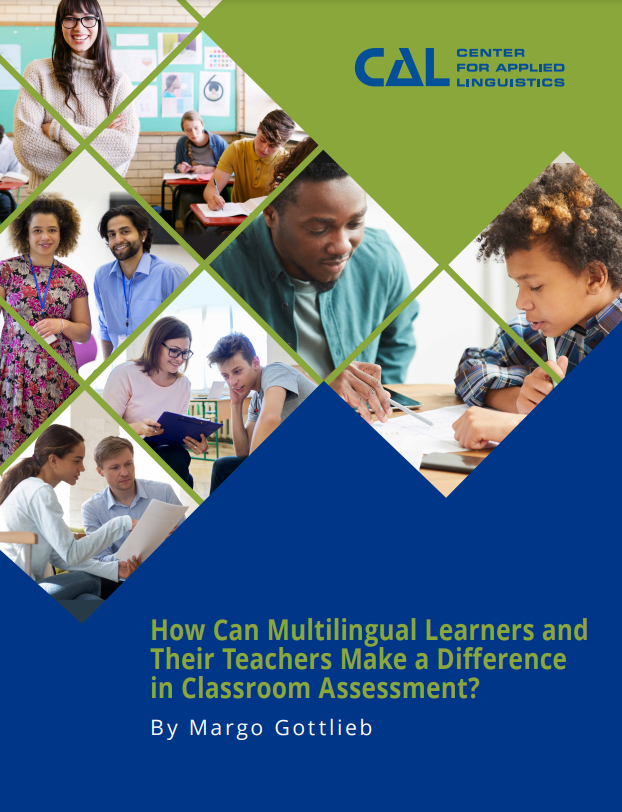By Margo Gottlieb
Classroom assessment can be a powerful linguistic and culturally sustaining process for both multilingual learners and their teachers. Integral to educational parity, classroom assessment can stimulate multilingual learner engagement and represent the interplay between content and language as a means of advancing student learning. At the other end of the spectrum, classroom assessment can be a tool that reinforces multilingual learners’ academic deficits and underscores stark differences in their performance compared with that of other student groups. In this capacity, assessment can be viewed in a negative light with potentially adverse effects on multilingual learners and their teachers. Which of these perspectives do you align with?
This participatory white paper examines tensions in classroom assessment with the intent of demystifying purposes, practices, and policies for educators of multilingual learners in K-12 settings. United by a common experience of the novel coronavirus-19 and its variants, we revisit seven sets of competing ideas that were posed in the Center for Applied Linguistics’ inaugural blog series, Multilingual Mysteries, in fall 2021. Table 1 captures the duality of some challenging assessment topics that educators confronted, and we addressed, during the throes of the global health pandemic.
About the author:
Margo Gottlieb, Ph.D., has always envisioned and advocated for multilingualism as a cornerstone of education. Co-founder and lead developer of WIDA at the Wisconsin Center of Education Research, Margo has been a language teacher and coordinator, bilingual facilitator, director of assessment and evaluation, and domestic/international consultant. Having an extensive range of publications, her latest books include Classroom assessment in multiple languages: A handbook for teachers along with its companion, Assessment in multiple languages: A handbook for school and district leaders (2021), Assessing multilingual learners: A month-to-month guide (2017), and Assessing English language learners: Bridges to equity, 2nd Ed. (2016).
About the publisher:
The Center for Applied Linguistics (CAL) is a nonprofit organization founded in 1959. Headquartered in Washington, DC, CAL has earned an international reputation for its contributions to the fields of bilingual and dual-language education, English as a second language, world languages education, language policy, assessment, immigrant and refugee integration, literacy, dialect studies, and the education of linguistically and culturally diverse adults and children. CAL’s mission is to promote language learning and cultural understanding by serving as a trusted resource for research, services, and policy analysis. Through its work, CAL seeks solutions to issues involving language and culture as they relate to access and equity in education and society around the globe.

